
| REASONS TO BELIEVE: CATHOLIC APOLOGETICS | 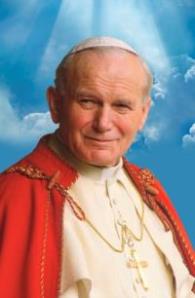 Christianity is a religion that is reasonable to believe; it is rooted in history and has been transmitted to the present by the Church. For faith to be complete, it must be supported by reason, what John Paul II called the two wings of Catholic thought. Faith without reason, he argues, leads to superstition; reason without faith leads to nihilism and relativism, which eventually led to Nazi and Communist totalitarianism, both of which he intimately experienced in his own life. He was a vigorous defender of objective truth and the ability of human reason to discover it. By Msgr. Lawrence Moran & Ronald J. Eldred
The Catholic Faith is a fantastic religion, yet it’s true. A recent convert to the Faith, a noted intellectual, was derided by his colleagues for becoming a Catholic, and his answer reportedly was: “What else is there!” The Catholic Church was there to witness the events described in the Bible, wrote them down, and transmitted them down through the ages for our benefit. It is comforting to know that all of the teachings of the Church are reasonable to believe, and that we don’t have to rely on blind faith alone.
Always be prepared to make a defense to any one who calls you to account for the hope that is in you, yet do it with gentleness and reverence. (1 Peter 3:15-16).
St. Peter is talking about using apologetics to defend and explain the Catholic Faith in the above quotation. Catholic Apologetics is the science that provides reasons to believe what the Catholic Church teaches is true. It is also called fundamental theology, which is a branch of theology. Another name for theology is the “science of faith”, which is defined as "being concerned with faith in the objective sense of ‘that which is believed’ and in the subjective sense of ‘that by which a person believes.’ Theology accepts Scripture and tradition as the remote rule of faith, and the doctrines of the Church as the proximate rule of faith. But as a science of faith, it seeks by human reason to establish the foundations of faith, to penetrate into the meaning of the mysteries of faith, to show that faith is consistent with reason, and to defend the faith against those who deny the truths of Christianity."
Apologetics derives from the Latin word apologia, which means defense or justification, in this instance defense of the Faith, meaning the teachings of God revealed to the Catholic Church as interpreted by its magisterium or teaching authority under the inspiration of the Holy Spirit. Apologetics is defined in the Modern Catholic Dictionary as “The theological science which aims at explaining and justifying religious doctrine in order to show its reasonableness in answer to objections of those who deny the reasonableness of any religion, especially of a revealed religion, such as Christianity, and more particularly the reasonable grounds of the Catholic religion.” In other words, the purpose of apologetics is to make the Faith reasonable to believe that it is true, persuade unbelievers to accept the Faith, and to help believers to overcome any doubts or difficulties they might have regarding the Faith.
Reasons to believe are also known as motives of credibilty, which are the reasonable grounds for believing something to be true. Fr. Hardon states in the Modern Catholic Dictionary:
Credibility is generally applied to the evidence from experience, history, and reason for the truthfulness of Christian revelation, either in general or of a particular mystery like Christ's divinity or his resurrection. There are three logical stages for establishing the credibility of a mystery of faith: 1. the existence of God is proved by reason; 2. God's worthiness of being believed, if he makes a revelation, is likewise seen from reason, since a perfect God is all-knowing and trustworthy; 3. the fact that he actually made a revelation is then proved from the miracles he performs to confirm the testimony of those who claim to speak in his name.
One of the greatest all-time apologists for the Faith was St. Thomas Aquinas who in his Summa Contra Gentiles sought to demonstrate that some revealed truths can be established by natural reason and that none of them is contrary to reason.
Since the name apologetics hasn’t the same meaning in English as the Greek word from which it is derived, the Modern Catholic Dictionary tells us that theologians today prefer to call apologetics fundamental theology, a science that explains the grounds or basis of religion, revelation, Christianity, and Catholicism. The meaning of apologetics in English unfortunately tends to imply making apologies or giving excuses for something, which, of course is not what is meant by apologetics. We do not apologize or give excuses for the Faith, but instead we explain and defend the Faith to demonstrate its reasonableness.
There are literally hundreds of questions of an apologetic nature, many of which we discuss in this website. For example, the day after 9/11 one of my students asked, “Why does God allow bad things to happen to good people?” Countless people over the ages have lost their faith or never acquired it in the first place, because they had no satisfactory answer to the problem of evil. One of the main reasons given by atheists for not believing in God is the problem of suffering. They ask how could a loving, merciful, and just God allow innocent people to suffer. In this website we try to offer satisfactory answers to this and many other questions beyond any reasonable doubt.
It is natural for young people to ask questions of this sort when they reach young adulthood. Up until the time they had asked such questions, most of them had attended Catholic schools all of their lives where they had been taught the Catholic Faith from the instruction of their teachers and by the good example of their parents and teachers. They had accepted what they had been taught, because of their love for their parents and teachers who had earned their trust. Their trust was well founded for they had indeed been taught the Catholic Faith—the teachings of Jesus Christ—in all of its purity and fullness. As the questions of my students demonstrate, they had reached young adulthood, an age when young people are starting to question what they have been taught and desire to find the answers for themselves. They desire a deeper understanding of what they have been taught. This is as God intended, for he gave us intelligence with which to know about him through his creation and revelation and a free will with which to choose to believe and act on it or not. He wants all of us to use our reason to draw our own conclusions about the truth of the Catholic Faith. St. Paul wrote regarding adult faith: “When I was a child, I used to talk as a child, think as a child, reason as a child; when I became a man, I put aside childish things” (1 Corinthians 13:11, New American Bible, Revised Edition).
To relate faith (theology) and reason (philosophy), St. Augustine, the great fourth century theologian and philosopher, wrote “I believe, in order to understand; and I understand, the better to believe.” Like St. Augustine, St Anselm of Canterbury, who was a gifted eleventh century theologian, held that one must love God in order to have knowledge of him. In this regard, he wrote “I believe that I may understand.” In fact, theology has been defined as “faith seeking understanding” (fides quaerens intellectum in Latin).
St. Augustine also wrote in Against the Fundamental Epistle of Manichaeus that “For my part, I should not believe the gospel except as moved by the authority of the Catholic Church.” It is extremely important to stress that only the Catholic Church can attest to the truth of the Bible. One of the most important subjects considered in this website is proof that Jesus Christ established a church and that this church is the Catholic Church. The Church was there to witness the events described in the Bible and Tradition, eventually wrote them down, and transmitted them down through the ages for our benefit. The Catechism of the Catholic Church says of this matter: “The Church, ‘the pillar and bulwark of the truth’, faithfully guards ‘the faith which was once for all delivered to the saints’. She guards the memory of Christ's words; it is she who from generation to generation hands on the apostles' confession of faith” (No. 171). Substantial evidence will be offered in this website to make it reasonable to believe that this claim is true. |
| | FAITH AND REASON |  Triumph of St. Thomas Aquinas by Gozzoli
At the very top is Christ, whose words are printed in the space between the Evangelists: "You have written well of me, Thomas." Below Christ, are the Evangelists, who sit above Thomas writing their gospels beside their attributes-the lion, eagle, man, and ox. The inscriptions to the left and right of Averroes, who lies vanquished under Thomas’ feet, says, "truly here is the light of the Church" and "here he found the entire way of discipline." The saint is assisted on his left and right by Aristotle and Plato. Aquinas was a Dominican, so he is normally shown in the black and white habit of that order with a distinct tonsure and a shining sun on his breast as an emblem of his role as a teacher of doctrine. St. Thomas was a great defender of the Faith who united Faith and Reason. Beginning with St. Augustine, theologians and philosophers discussed carefully and at length the relationships between faith and revealed religion (theology) on the one hand, and reason (philosophy) on the other. Faith was derived from what God had revealed in the Bible and Tradition and philosophy provided the preambles for religious faith. According to the Modern Catholic Dictionary, Preambles of the Faith are "the main premises of reason on which the act of divine faith depends as on its rational foundation." According to Ronda Chervin and Eugene Kevane in Love of Wisdom: An Introduction to Christian Philosophy, philosophy doesn’t enter into religious faith as its substance, but serves it in the initial stages of the return of the' soul to God. For instance:
One can see this relationship between reason and faith in the method of St. Thomas in his later works. For example, in his Summa contra Gentiles (IV, I), he explains that there are two orders of knowledge: reason and revelation. Then he explains that Books I to III of this Summa take their departure from creatures, ascending by the work of reason to God. Book IV will take its departure from divine revelation, descending from God to the creatures of the created universe. In other words, St. Thomas' method exemplifies the relationship between faith and reason, and can be seen in this structure of the Summa contra Gentiles. Furthermore, in the first three books, which are philosophical in nature, the philosophizing proceeds within the Faith, which is its guiding star, so that it will not fall to one side or the other, deviating into errors of various kinds.
They continue to inform us that St. Thomas uses the same method from another point of view in the Summa Theologiae “where rational theology is expounded in classic form in the first questions of the Summa, which is devoted to sacred doctrine.” They conclude that in Aquinas, Summa "philosophy is seen as thought functioning visibly within the Faith. Yet it remains natural theology, the work of natural reason ascending to God, and discerning his most basic attributes, out of the preambles of Faith.” Natural Theology employs philosophy to make it reasonable to believe that God exists and something of his attributes or perfections. It also is used to make it reasonable to believe that God revealed himself to us. On the other hand, Sacred Theology begins with the fact of God’s revelation.
Natural Theology and Sacred Theology
What is the relationship between Sacred Theology (faith) and Natural Theology (reason)? Regarding Sacred Theology, St. Thomas Aquinas said the Church has “a science of the things that can be concluded from the Articles of Faith” (On Truth, 14, 9, ad 3). Chervin and Kevane write that the science of Sacred Theology:
seeks to understand the Articles and mysteries of the Faith more deeply, to perceive their interconnections, and to defend them from error. It does not receive its principles from the human sciences, not even from metaphysics, but takes them immediately from God through the revelation proposed by the Church. Sacred theology, therefore, is a science that stands on a higher level, using the natural arts, sciences, and disciplines as it judges them to be helpful. It itself, however, is the science that teaches divine revelation, elabo-rating it and developing it in its own order. Sacred theology is called "sacred" because of this fact that it takes its departure from the Articles of Faith and develops its discourse in their light. One must recall that the Articles of Faith summarize divine revelation by the authority of the Church, which gathered them into the basic profession of baptismal faith called the Apostles' Creed. St. Thomas Aquinas is at special pains to show that sacred theology takes its point of departure and the light of its discourse from the Apostles' Creed.
Fr. Hardon defines Natural Theology in his Modern Catholic Dictionary as "The knowledge of God, his existence and attributes, derived from the world of nature and by the light of natural reason; also called theodicy." In other words, Natural Theology starts from observing what God has created and reasons from that to proof of his existence and attributes or perfections. St. Paul writes in his Letter to the Romans of God’s existence: “Ever since the creation of the world his invisible nature, namely, his eternal power and deity, has been clearly perceived in the things that have been made” (Romans 1:20).The ancient Greeks aspired to Natural Theology, something that the Fathers of the Church received and developed, especially in the work of St. Augustine. Chervin and Kevane state that “the very existence and nature of natural theology, the result of the metaphysical ascent of the mind to God, manifests the manner in which philosophy relates to faith and revealed religion. The one and same transcendent reality of Almighty God, who is seen and recognized by the metaphysical ascent, is heard speaking his word to his creatures and revealing himself to them by doing so.”
John Paul II on Faith and Reason
Pope John Paul II spent much of his life considering the relationship between faith and reason. He was a university professor much of his adult life, and he continued the role of teacher throughout his years as a bishop and during his papacy. He reached millions by his general audiences, travels, apostolic letters, books, speeches, and above all encyclicals, such as Fides et Ratio (Faith and Reason). In these writings and speeches he reasserted traditional Church teachings on doctrine and morality, especially the culture of life and family values. His greatest contribution probably was his efforts to reunite faith and reason (theology and philosophy), which had been separated in the seventeenth and eighteenth centuries by philosophers, such as Rene Descartes and Immanuel Kant.
Faith is the acceptance of the truth or reality of something based on the word of others. In religion, faith is the acceptance of what God has revealed as witnessed and attested by the Church and found in the Bible and Tradition. In general, reason is the process of the mind in its function of attaining the truth, including the truth of what God has revealed. Truth is “conformity of mind and reality”, reality meaning that “which exists objectively and independently of the mind.” There are basically two ways at looking at the truth of things: the Realist and the Idealist.
|
| | REALISM AND IDEALISM |  Rene Descartes was a seven-teemth century philosopher who claimed the search for knowledge begins with innate ideas, such as certain basic mathematical axioms and self-evident truths. Although he was a devout Catholic, his “methodical doubt”, in effect, separated faith from reason, theology from philosophy, leaving no way to ascend to God by rational means. One could no longer reason to God’s existence and the truth of revelation by relying on sources outside the mind; one had to rely strictly on innate ideas or intuition as starting points with which to reason to his existence.
The most basic question in all of philosophy is this: does a real world exist apart from our knowledge of it? In other words, is there a reality or truth that exists outside and independent of our minds? Philosophers have formulated two diametrically opposed positions to answer this question: Realism and Idealism.
Beginning with St. Paul, the Church has always taught that we can know things with certainty that exist outside or independent of our minds by using our senses and powers of intellect, meaning we are capable of reasoning from what God has created to the reality of his existence and other matters. The Realist believes that images of things in the mind apprehended by the senses really exist outside the mind; that they correspond to what is in the real world and are not simply inventions of the mind. The philosophy that we can know objective reality is known as Realism, which was the principal philosophical outlook fashioned into a synthesis and harmony of faith and reason in the universities of medieval Europe.
The ability to know reality—that which exists outside our minds—is absolutely necessary to religious faith, because not only did the events described in the Bible happen outside and independent of our minds, but also happened long ago. This problem is compounded by the fact that the witnesses to the events described in the Bible had to reliably apprehend events outside their minds. Knowing the reality or truth of these long past events depends upon us having the ability to know things that exist or once existed outside our minds and the ability of the witnesses to these events to detect and interpret them accurately. Moreover, since these events happened long ago and we did not witness them ourselves, we must rely on a credible and trustworthy source—the Catholic Church—whose Apostles witnessed these events and wrote them down in the scriptures.
Although the separation of faith and reason had begun in the Middle Ages, it wasn’t completed until after the eighteenth century Enlightenment when the philosophy of Idealism emerged. Idealism is the notion that we can't know anything outside our minds for certain; all we can know for certain is our ideas. Applied to religion, this means since the events described in the Bible are found in the world of reality outside of us and happened long ago, its truth can't be known with certainty. The Idealist claims that if there is to be any knowledge of God at all, it must either be innate or infused directly into our souls.
Descartes’ and Kant’s Idealism was the most notable representative of this way of thinking. Contrary to their intentions—for both men believed in God—they got humans thinking in the wrong direction, which eventually led to skepticism, agnosticism, and atheism. Both claimed that because of the limitations of our senses and other reasons, the only things that can be known for certain are ideas, not objective reality. Since Idealists necessarily ignore doctrine and the witness of the Church—things that exist or once existed independently of our minds—they must rely solely on intuition or some other type of inner experience to explain the formation of faith. Such experientual faith was called the “religion of the heart” by nineteenth century Protestant theologians and biblical scholars influenced by Kant, such as Friedrich Daniel Ernst Schleiermacher, who was a prominent German theologian, philosopher, and biblical scholar. Some have called him the Father of Modern Liberal Protestantism.
Descartes claimed the search for knowledge begins with innate ideas, such as certain basic mathematical axioms and self-evident truths. His “methodical doubt”, in effect, separated faith from reason, theology from philosophy, because there is left no way to ascend to God by rational means. One could no longer reason to God’s existence and the truth of revelation by relying on sources outside the mind; one had to rely strictly on innate ideas or intuition as starting points with which to reason to his existence. Early modern philoophers who followed Descartes, such as Baruch Spinoza, completely rejected Descartes variety of religious rationalism, which effectively made it impossible to reason to proof of God's existence or anything else in the spiritual realm. A century later, Kant's Idealism closed “all the windows of access which the human mind had to the real world.”
Idealism effectively shuts faith off from reason. Since the Bible describes events that happened long ago outside of our minds, its contents can’t be proved truthful by reasoning from our ideas which Idealists claim don’t necessarily correspond to objective reality or truth. If God can’t be reached by reason, then all that is left is blind faith. Although Idealists, such as Descartes and Kant, claimed they could prove God’s existence by starting from inner experience of some sort, they were effectively shut off from him. In an Idealist world, there can be no rational proofs for the existence of God. There is no way to reason from effects (creation) to their cause (God), both of which exist outside our minds.
In its extreme form, Idealism is pure subjectivism, which denies existence to anything outside our minds. Subjectivism inevitably leads to relativism, which is the notion that truth and moral values are not absolute. The relativist believes that there is no objective truth or system of morality that necessarily exists outside our minds; therefore, the moral thing for us to do in given situations depends on our opinions and other factors, such as time, place, circumstance situation, context, consequence, proportion, or some other such notion.
|
| | REASONABLE CATHOLICISM | 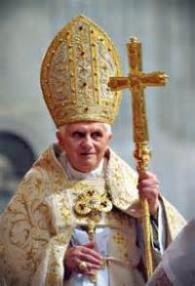 Pope Emeritus Benedict XVI is a great defender of truth in an age that regards truth as far too subjective a concept for us to find a universally valid standard. He declared in his homily at the opening of the conclave in 2005 that "We are building a dictatorship of relativism." He said in an interview later that the modern age "does not recognize anything as definitive and whose ultimate standard consists solely of one's own ego and desires." A vigorous effort was made during the past century to again unite faith and reason by reviving philosophical Realism. John Paul II played a major role in this by employing Thomistic philosophy, which stresses the objectivity of the world, and Christian Personalism, which stresses the infinite worth of humans created in the very image and likeness of God and redeemed by Christ. Personalism conceives the person as having a free will and an intellect capable of knowing God, truth, and goodness. John Paul II offers us a way to find freedom and dignity in a world succumbing to a culture of death, a world where human beings have lost meaning and purpose to their lives and reasons for hope. Living in a world that is increasingly one of darkness and despair, he reminds us that Jesus Christ is the only true light of the world; that only he can dispel the darkness that envelopes us.
Christianity is a religion that is reasonable to believe; it is rooted in history and has been transmitted to the present by the Church. For faith to be complete, it must be supported by reason, what John Paul II called the two wings of Catholic thought. Faith without reason, he argues, leads to superstition; reason without faith leads to nihilism and relativism, which eventually led to Nazi and Communist totalitarianism, both of which he intimately experienced in his own life. He was a vigorous defender of objective truth and the ability of human reason to discover it.
Pope Benedict XVI said in a catecheses on faith delivered in Paul VI Hall on November 21, 2012 that "The Catholic faith is therefore reasonable and also nourishes confidence in human reason." He goes on to say:
The First Vatican Council, in its Dogmatic Constitution Dei Filius, affirmed that reason is able to know God’s existence with certainty through the way of creation, while there belongs to faith alone the possibility of knowing "easily, with absolute certainty and without error "(DS 3005) the truths concerning God, in the light of grace. The knowledge of the faith, furthermore, is not opposed to right reason. Blessed Pope John Paul II, in fact, in the Encyclical Fides et ratio, summed it up thus: "human reason is neither annulled nor debased in assenting to the contents of faith, which are in any case attained by way of free and informed choice"(no. 43). In the irresistible desire for truth, only a harmonious relationship between faith and reason is the right path that leads to God and the fulfillment of self.
In this regard, the Catechism of the Catholic Church states that “The Church teaches that the one true God, our Creator and Lord, can be known with certainty from his works, by the natural light of human reason” (No. 47). This echoes St. Paul’s classic text on the subject of the possibility of knowing God found in his Letter to the Roman: "Whatever can be known about God is clear to them: he himself made it so. Since the creation of the world, invisible realities, God's eternal power and divinity, have become visible, recognized through the things he has made. Therefore they [the pagans] are inexcusable" (Romans 1:19-21). John Paul II stated in his General Audience of March 20, 1985:
The Apostle has in mind here people who ‘in this perversity of theirs hinder the truth’ (Romans 1:18). Sin draws them away from giving glory due to God, whom every person is able to know. He is able to know God's existence and even, to a certain extent, his essence, his perfections and his attributes. The invisible God becomes in a certain way "recognized through the things he has made.
During the nineteenth century First Vatican Council, the Church reaffirmed the idea that the human intellect is endowed to know God through creation in Dei Filius which states: “The same Holy mother Church holds and teaches that God, the source and end of all things, can be known with certainty from the consideration of created things, by the natural power of human reason: ever since the creation of the world, his invisible nature has been clearly perceived in the things that have been made.”
In our century, the Second Vatican Council reaffirmed this doctrine anew in the Constitution on Divine Revelation (Dei Verbum) stating: “As a sacred synod has affirmed, God, the beginning and end of all things, can be known with certainty from created reality by the light of human reason (see Rom. 1:20); but teaches that it is through His revelation that those religious truths which are by their nature accessible to human reason can be known by all men with ease, with solid certitude and with no trace of error, even in this present state of the human race.” The Catechism says of this matter: “The existence of God the Creator can be known with certainty through his works, by the light of human reason, even if this knowledge is often obscured and disfigured by error. This is why faith comes to confirm and enlighten reason in the correct understanding of this truth.”
The Book of Wisdom in the Old Testament proclaims the same doctrine as does St. Paul where it states:
For all those were by nature foolish who were in ignorance of God, and who from the good things seen did not succeed in knowing him who is, and from studying the works did not discern the artisan. "But either fire, or wind, or the swift air, or the circuit of the stars, or the mighty water, or the luminaries of heaven, the governors of the world, they considered gods. Now if out of joy in their beauty they thought them gods, let them know how far more excellent is the Lord than these; for the original source of beauty fashioned them. Or if they were struck by their might and energy, let them from these things realize how much more powerful is he who made them. For from the greatness and the beauty of created things their original author, by analogy, is seen. But yet, for these the blame is less; for they indeed have gone astray perhaps, though they seek God and wish to find him. For they search busily among his works, but are distracted by what they see, because the things seen are fair. But again, not even these are pardonable. For if they so far succeeded in their knowledge that they could speculate about the world, how did they not more quickly find its Lord? (Wisdom 13:1-9).
With repect to to this theme found in Sacred Scripture, Pope John Paul II tells us in his General Audience that although Divine revelation is the basis of faith, at the same time “passages of Sacred Scripture in which this revelation is found, teach us that man is capable of knowing God by reason alone. He is capable of a certain ‘knowledge’ about God, even though it is indirect and not immediate.” He informs us that intellectual knowledge of God is systematically treated by the science of natural theology, “which is of a philosophical nature and springs from metaphysics, that is, the philosophy of being. It focuses on the knowledge of God as the First Cause, and also as the Last End of the universe.” He closes his homily by stating that “according to the Church, all our thinking about God, based on faith, also has a ‘rational’ and ‘intellective’ character.” He states:
It is clear that knowledge through faith differs from purely rational knowledge. Nevertheless God would not have been able to reveal himself to the human race if it were not already naturally capable of knowing something true about God. Therefore, alongside and in addition to an "I know," which is proper to man’s intellect, there is an “I believe,” proper to the Christian. With faith the believer has access, even if obscurely, to the mystery of the intimate life of God who reveals himself.
By using human reason, we can make it reasonable to believe that God exists, something of his attributes or perfections, and what we owe such a God. Moreover, we can make it reasonable to believe that the human soul is immortal and that there exists a natural moral order. Because of our fallen human nature due to Original Sin, any further knowledge of God must be revealed by him. However, it can be made reasonable to believe that God revealed enough about himself necessary for our salvation. For example, although we can know a lot about God using human reason, he had to reveal it to us that he is a God of three divine persons who created and loves us so much that he sent his only begotten son into the world to suffer and die for us. It should be comforting to us to know that our faith is not blind, but is fully supported by reason; that the Church's teachings are not only revealed by God, but also reasonable to believe.
PURPOSE OF THIS WEBSITE
Our goal is to provide readers with reasons to believe that what the Catholic Church teaches is true. Our qualifications comes from years of having taught the Catholic Faith in school classrooms, RCIA classes, and other academic and social settings. First we are going to discuss what it means to believe something, especially the truths that God has revealed to us. This will involve examining the role of faith, reason, and certitude in our search for truth. One of the issues that we will consider during this discussion is: How can we know the truths of the Faith with certainty? Then using human reason, we are going to prove beyond a reasonable doubt that God exists. All other knowledge of religion presupposes that he does. Once we have established that God does exist, or at least making it reasonable to believe that he does exist, using human reason we are going to identify his attributes or qualities. Then based on rational proof of God’s existence and something of his attributes, using human reason we are going to establish that we owe God worship, thanksgiving, and obedience. Furthermore, we hope to prove by using reason that the human soul is immortal and that God established an objective moral order called the natural law.
In order to achieve these objectives, we will examine the basics from the traditional Aristotelian-Thomistic metaphysical point of view, variations on this thought, and various attempts of modern philosophers and theologians to refute it. Before applying the knowledge acquired thus far to specific applications,we discuss philosophies that rejected the Church’s metaphysical manner of explaining its teachings, and how to refute its critics.
Following this we explain how Christ established the Catholic Church to continue his presence in the world and provide us with the means of grace with which to achieve salvation. Proof that God revealed himself depends on the truth that he established a church, the One, Holy, Catholic, and Apostolic Church. St Augustine wrote in the fourth century that he couldn't believe what is contained in the Bible without the testimony of the Church, because the Church was there to witness the events described therein, eventually wrote them down in scripture, and transmitted down through the ages for our benefit.
Once the philosophical and theological tools have been presented, we include a thorough overview of the four pillars of the Faith as found in the Catechism of the Catholic Church. The pillars are as follows: the Creed; the Sacraments; the Commandments; and Prayer.
Subjects included in our treatment of the Creed include the doctrines of the Holy Trinity, the Creation and Fall, the Incarnation, and the Redemption. Then the Sacraments are explained from a metaphysical point of view, followed by a discussion of Christian morality from a natural law point of view and the personalist philosophical perspective developed by Pope John Paul II. The focus is on how one can grow in virtue and holiness by keeping the Commandments and following the teachings of Jesus as found in his Sermon on the Mount and elsewhere in the Gospels. The topic of prayer includes a discussion of the classical mystical prayer tradition of the great spiritual theologians and directors in the Church's history.
Not only are the philosophical and theological tools that we have presented applied to an understanding of the doctrines found in the Creed, but to other topics such as the Church and World, Justice in the Marketplace, Dialectical Materialism, Liberal Capitalism and the Social Encyclicals, Social Justice, War and Peace, Church and State, Christ as King and Lord of History, Man and Woman, Husband and Wife, Suffering in Christ, The Body of Christ, the Universal Call to Holiness, and Praying in Christ.
The importance of what God has revealed to us in the Bible is so great that we include a separate treatment of this subject. Every doctrine of the Catholic Faith is found either explicitly or at least implicitly in the Bible. We begin by discussing the purposes, origins, and versions of the Bible, followed by a consideration of the books of the Bible, both individually and in their natural groupings. Besides the doctrinal and spiritual message of each book, we discuss the historical and social context of the Bible. Moreover, we introduce how the Bible has been interpreted (or misinterpreted) over the ages. A major theme of the course is St. Augustine’s theme of how the New Testament is concealed in the Old, and how the Old is revealed or fulfilled in the New Testament. Another major theme is the covenantal relationship God had with his Chosen People (the Jews,) and how this covenant (Testament) was fulfilled and perfected in the New and the Eternal Covenant (Testament).
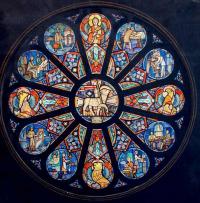 Go to Reasons to Believe: Natural Theology for a continuation of this theme. Go to Reasons to Believe: Natural Theology for a continuation of this theme.
|
|
|
|
|
| |
|
Contents
|
|

REASONS TO BELIEVE: NATURAL THEOLOGY- discusses the role of faith, reason, and certitude in our search for truth. Then examines many arguments that make it reasonable to believe that God exists, followed by identifying his attributes or perfections. Then based on rational proof of God’s existence and something of his attributes, using human reason establishes God is owed worship, thanksgiving, obedience, and love. Furthermore, reason is used to prove the human soul is immortal and that God established an objective moral order called the natural law. Following is proof that God revealed himself in Scripture and Tradition and that Christ established the Catholic Church to continue his presence in the world and provide the means with which to distribute his graces and mercy.
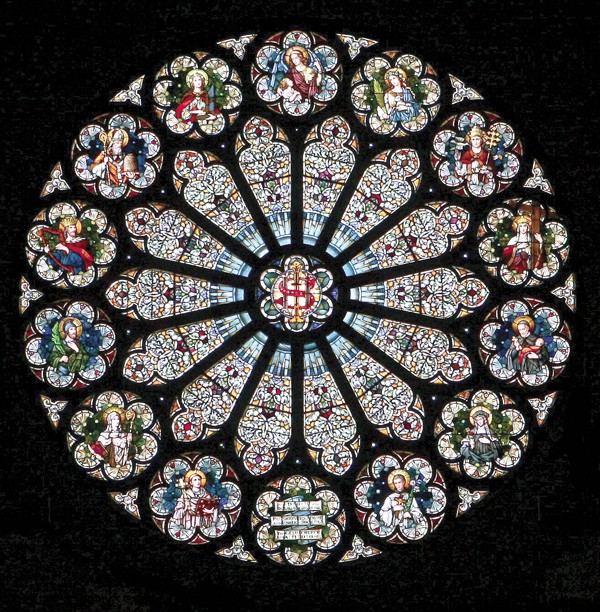
UNIVERSAL CALL TO HOLINESS- The meaning of holiness; Growing in holiness; The Catholic Church as channel of grace; The Doctrine of Grace; Stages of holiness; Means to achieve holiness and union with God; The sacraments and holiness; Theological and Cardinal Virtues; Gifts of the Holy Spirit; Fruits of the Holy Spirit; Prayer and Holiness; Works of mercy; Our enemies – the world, the flesh, and the devil and how to combat them; How to purify the senses and the faculties o the soul.
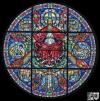
CATECHISM - A thorough overview of the four pillars of the Faith as found in the Catechism of the Catholic Church. The pillars are as follows: the Creed; the Sacraments; the Commandments; and Prayer.

SOCIAL JUSTICE- Among the topics covered are: The Biblical foundation and theology of social justice; Social doctrines and the natural law and personalist philosophy; Social doctrines of the Catholic Church; Catholic social encyclicals and other documents.

ARISTOTELIAN-THOMISTIC PHILOSOPHY - We examine the basics from the traditional Aristotelian-Thomisticmetaphysical point of view, variations on this thought, and various attempts of modern philosophers and theologians to refute it, followed by a refutation of its critics.
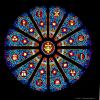
SACRED SCRIPTURE - Since every doctrine of the Catholic Faith is found either explicitly or at least implicitly in the Bible, we discuss the purposes, origins, and versions of the Bible, followed by a consideration of the books of the Bible, both individually and in their natural groupings. Besides the doctrinal and spiritual message of each book, we discuss the historical and socialcontext of the Bible. Moreover, we introduce how the Bible has been interpreted (or misinterpreted) over the ages and how to refute the critics.
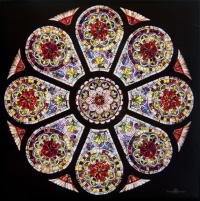
OLD TESTAMENT - The Old Testament is the covenant that God made with Moses at Mt. Sinai on behalf of the Israelites, which was sealed by the sacrifices of animals. The Old Testament was fulfilled in the New and Eternal Covenant—the New Testament—that God made with the People of God—the Catholic Church—which was sealed by the sacrifice of Jesus Christ on Mt. Calvary.
Under Construction

NEW TESTAMENT
Under Construction

UNDERSTANDING THE BIBLE - In this essay we look at the meaning of Divine Revelation, the meaning of inspiration, and what the Bible is, including who wrote it, and when, where, how, and why it was written, and how the books were selected. Also, we examine the senses of scripture and typology as well as guidelines for reading and interpreting it. Furthermore, we discuss the different exegetical or hermeneutical tools and translation theories. Moreover, we consider the similarities and differences of Catholic and Protestant versions of the Bible and of the meaning of the apocryphal writings.
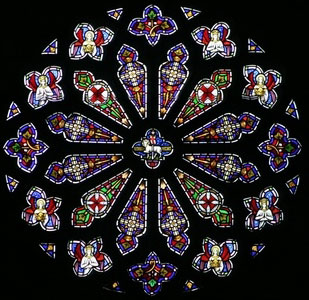
JUSTIFICATION, SANCTIFICATION, AND GRACE - Catholics and Protestants disagree substantially over the meaning of justification, sanctification, and grace, and that both parties rely heavily on St. Paul’s writings to justify their position. This issue is thoroughly discussed in this essay.
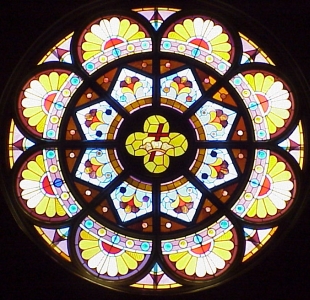
THE LORD'S DAY- We are very concerned about two alarming developments that have taken place in the Catholic Church during the past few decades, especially in the U.S., regarding the Lord’s Day: One concern is the declining attendance of Catholics at weekly Sunday Mass; the other is the decline among Catholics in the belief of the Real Presence of Jesus Christ in the Eucharist. We examine these phenomena in this essay.

ADDITIONAL TOPICS - Other topics discussed are the Church and World, Justice in the Marketplace, Dialectical Materialism, Liberal Capitalism and the Social Encyclicals, Social Justice, War and Peace, Church and State, Christ as King and Lord of History, Man and Woman, Husband and Wife, Suffering in Christ, The Body of Christ, the Universal Call to Holiness, and Praying in Christ.
Most of these topics are covered in other pages of this website.
|
|